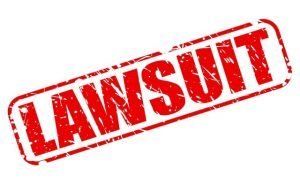
Free Consultation(203) 447-0000

Free Consultation(203) 447-0000
 Within the efforts to settle a personal injury lawsuit, sometimes the defendant (or even the plaintiff) may request that the settlement details be made confidential. That means in its nature and terms, all information regarding the settlement are kept secret between the parties involved in the litigation.
Within the efforts to settle a personal injury lawsuit, sometimes the defendant (or even the plaintiff) may request that the settlement details be made confidential. That means in its nature and terms, all information regarding the settlement are kept secret between the parties involved in the litigation.
Confidentiality agreements are typically requested by the defendant. The defendant may wish to avoid publicly admitting to wrongdoing and they may be concerned that a larger settlement would overshadow their protests of innocence. Also, the defendant may wish not to create a precedent which can inspire other potential plaintiffs to make similar claims against them in hopes of receiving the same or larger settlement amount.
Celebrity defendants fear that a lawsuit based on false accusations, but settled for PR purposes, could damage their career profile.
There are instances, though rare, when a plaintiff will request the details of settlement be kept confidential. For example, the plaintiff may fear that a smaller settlement amount would lead the public to assume that their suit had no merit. Also, a plaintiff may wish to keep the settlement confidential in order to secure any admissions of wrongdoing from the defendant – when the defendant is otherwise unwilling to make such statements in public.
There are numerous arguments against the use of confidentiality in lawsuit settlements. The strongest argument against such is that the confidentiality of these statements allows a defendant to keep a veil of secrecy regarding the facts that could improve the safety of the public.
For example, a manufacturer released a dangerous product to the market. They engaged in dozens of confidential lawsuits and settlements. But, because everything remained confidential, the product also remained on the market and other injured parties or non-injured parties were kept unaware of the potential harm.
Some manufacturers will state that publicly announcing settlement amounts will lead to baseless claims and further lawsuits from those that are attempting to receive similar compensation – without merit. Also, plaintiffs may attempt to secure settlements based upon the highest previously recorded settlement amount – whereas when settlements are kept confidential, the manufacturer may save on subsequent claims.
The plaintiff should be aware of all stipulations regarding confidentiality and before signing such agreement, they should be comfortable with these provisions and any penalties that apply if disclosure occurs. When agreeing to such settlements, a plaintiff must carefully read and consider all language under the counseling of their attorney. There are instances where a confidentiality agreement will extend beyond the plaintiff – and apply to all known associates and even family. Therefore a plaintiff could lose their settlement and face penalties even if a family member discloses the settlement details.
The settlement process is highly complex. If you are considering a lawsuit against a negligent party – whether for malpractice or personal injury – contact a skilled Connecticut attorney that can guide you through every step of that process. Contact Berkowitz and Hanna LLC today to schedule a no obligation case evaluation. Call us or contact us online to get started.
Berkowitz Hanna
